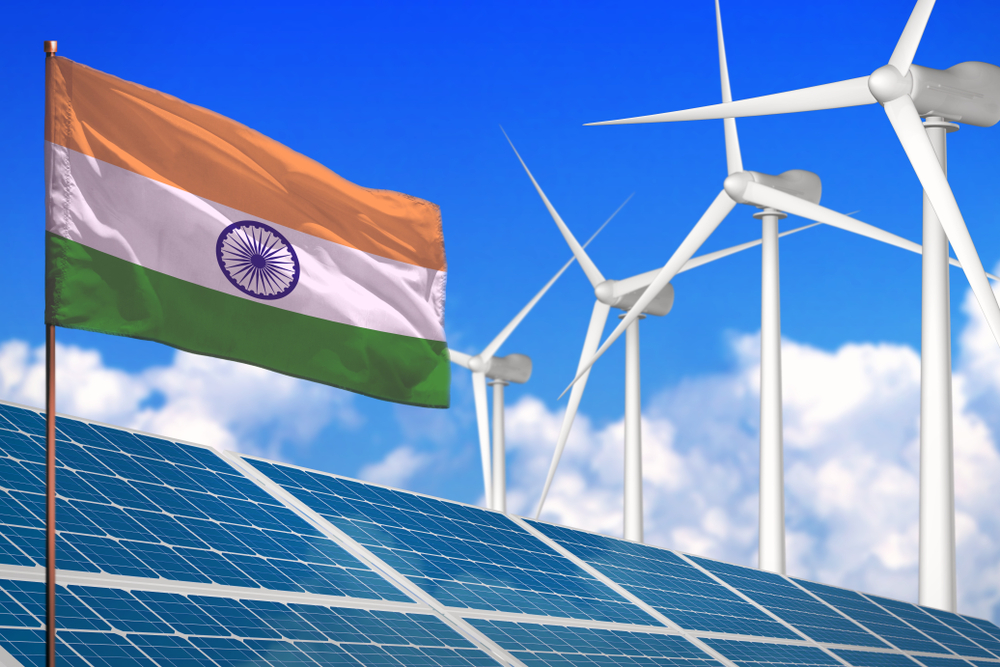
The fight against the novel coronavirus has bought the entire country to a standstill. During the nationwide lockdown announced by Prime Minister Narendra Modi, only essential services are allowed to operate.
As India struggles with the lockdown, the government has taken measures to insulate the renewable energy sector as much as possible. Due to a sharp decline in commercial and industrial activity, there was a resulting decline in the power demand leading to shutdown of several thermal power plants in the country in order to match demand with supply.
With an ambitious target of 175 GW of renewable energy by 2022, India remains strong in its pursuits. However, with the decline in the demand for predictable and controllable power generation in the grid, the impact of increased share of unpredictable and intermittent renewable energy generation remains a matter of grave concern.
In anticipation of possible curtailment by various states, the Ministry of New and Renewable Energy (MNRE) reiterated the must-run status accorded to renewable energy projects. Must-run status means that electricity retailers are obligated to buy all electricity generated from renewable energy projects irrespective of the cost or other parameters.
Recently, following the extension of the lockdown period till 3 May 2020, the Ministry of Home Affairs has also allowed the construction of renewable energy projects in its revised guidelines. In a letter dated April 12, renewable energy project developers have also been granted an extension of commissioning deadlines by using the force majeure clause to seek an extension.
The Ministry of New and Renewable Energy (MNRE) , in an effort to make sure that payments for the renewable energy projects are not put in jeopardy, reiterated that all stakeholders involved in lending to the sector align their activities to strictly comply with its January 2019 order regarding the Approved List of Models & Manufacturers (ALMM) for solar cells and modules.
Additionally, in a bid to minimise the impact of COVID-19 pandemic on the heavily import-dependent domestic solar industry, India has staged the launch of a new campaign to foster its domestic renewable manufacturing scene.
MNRE, in recent days, has requested state and port authorities to set aside land sites of 50 to 500 acres to set up new factories of renewable equipment, from solar cells and modules to silicon ingots and wafers, steel frames, inverters, and batteries.
According to MNRE, the engagement has been fruitful with the states of Madhya Pradesh and Odisha and port authorities in the southern city of Thoothukudi expressing "keen interest”.
Moreover, the onset of the pandemic has not stopped state owned NHPC to hold a major solar auction. At a time of great uncertainty caused by the Covid-19 lockdown, this reaffirms investors’ faith in the long-term prospects of solar energy in India. The auction reportedly saw strong competition during price bidding and was oversubscribed.
The 2-Gigawatt tender concluded at tariff lows of INR 2.55/kWh ($0.033/kWh). These tariffs are lower than the 2019 average. Even though a slowdown is expected in India’s economic growth, the resulting tariffs indicate an optimistic view of the cost of financing of these projects by the developers.
According to news reports, the five winners at the auction were SB Energy (part of SoftBank), O2 Power (backed by private equity firm EQT and Singapore’s Temasek), Axis Energy, Avaada Energy and EDEN Renewables (joint venture of Total Eren and EDF Renewables).
Shielding them from the current supply constraints on equipment and labour, the projects are expected to come online in 2022.
“During lockdown we kept our interaction with stakeholders alive through virtual platforms and also brought out new bids,” Singh said. “This tariff is the result of several measures which we have undertaken during the past few months to enhance confidence of investors and to promote ease of doing business. We stand committed to minimizing the risk to investors”.
- https://www.pv-tech.org/news/india-rekindles-solar-manufacturing-push-as-crisis-exposes-import-reliance?utm_source=Mailer&utm_medium=ET_batch&utm_campaign=etenergy_news_2020-04-22&dt=2020-04-22
- https://energy.economictimes.indiatimes.com/news/renewable/mnre-asks-stakeholders-for-strict-compliance-of-almm-order-for-solar-pv-modules-cells/75274107
- https://energy.economictimes.indiatimes.com/news/renewable/covid-19-govt-allows-construction-of-renewable-energy-projects-in-revised-guidelines/75164060
- https://about.bnef.com/blog/indias-mega-pv-auction-amid-lockdown-shows-investor-faith/
- https://cleantechnica.com/2020/04/12/covid-19-lockdown-india-moves-to-ensure-renewable-projects-remain-unaffected/


